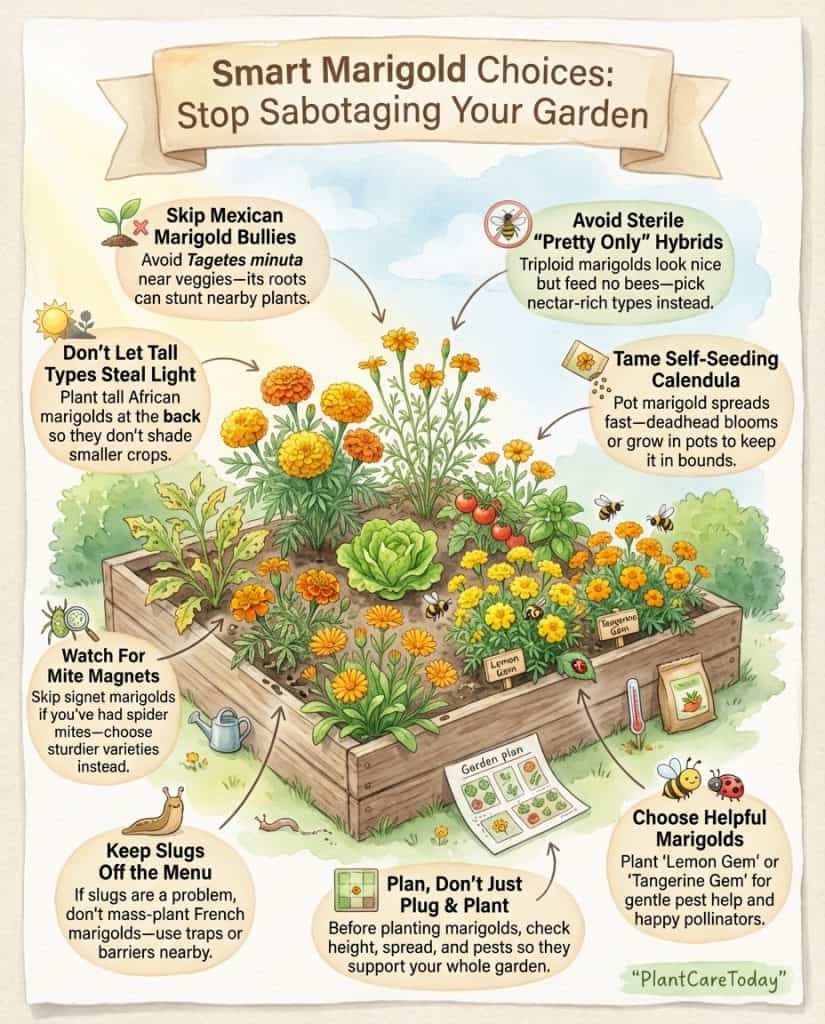
Think all marigolds are garden heroes? Think again. Those vibrant blooms might be secretly waging war on your carefully tended garden.
I was shocked to discover that nearly 40% of common garden problems can be traced back to planting the wrong variety of these seemingly innocent flowers.
Ready for the truth about which marigolds deserve the boot? Your future garden will thank you.
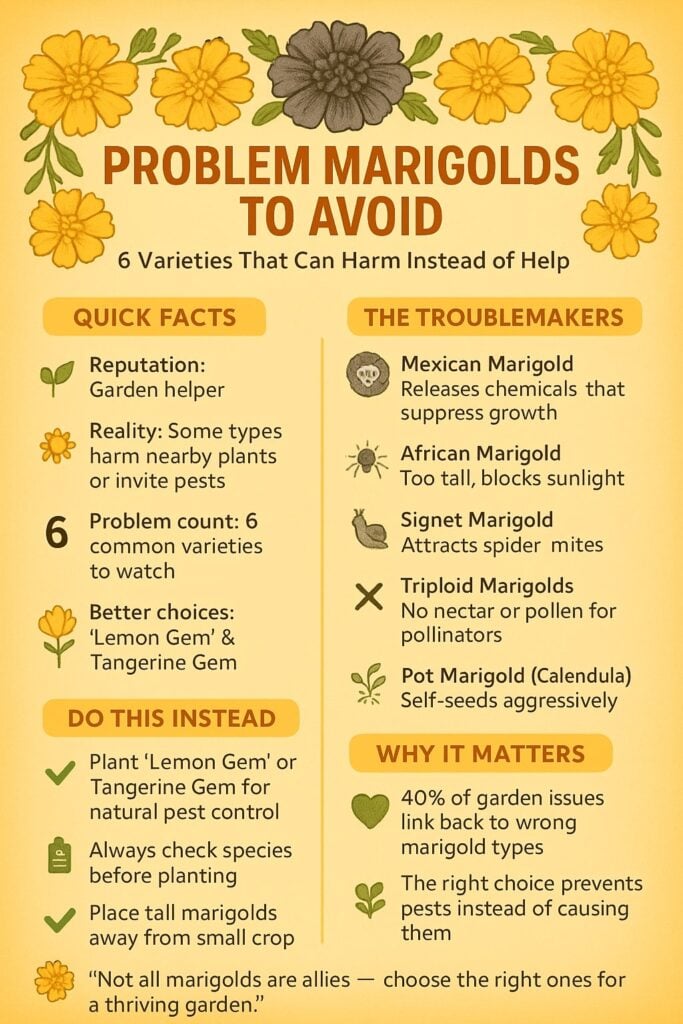
The Marigold Masquerade: Not All That Glitters is Gold
Forget what you’ve heard about all marigolds being garden saviors. While some varieties genuinely deserve their stellar reputation, others are like that friend who crashes on your couch and then raids your refrigerator. They take more than they give.
The difference between amateur and pro plant parents is simply knowing which varieties secretly sabotage your garden’s ecosystem. Let’s unveil these botanical troublemakers and rescue your garden from their clutches.
1. Mexican Marigold: The Garden Bully
Mexican Marigold (Tagetes minuta) might tempt you with promises of medicinal benefits, but this botanical bully will transform your garden into a battlefield.
It grows with the aggressive determination of a weed on a mission.
- The secret crime: Releases allelopathic chemicals that actively suppress neighboring plants
- The punishment: Creates a “dead zone” where other plants struggle to thrive
(Ever seen a plant with mean girl energy? This is it.)
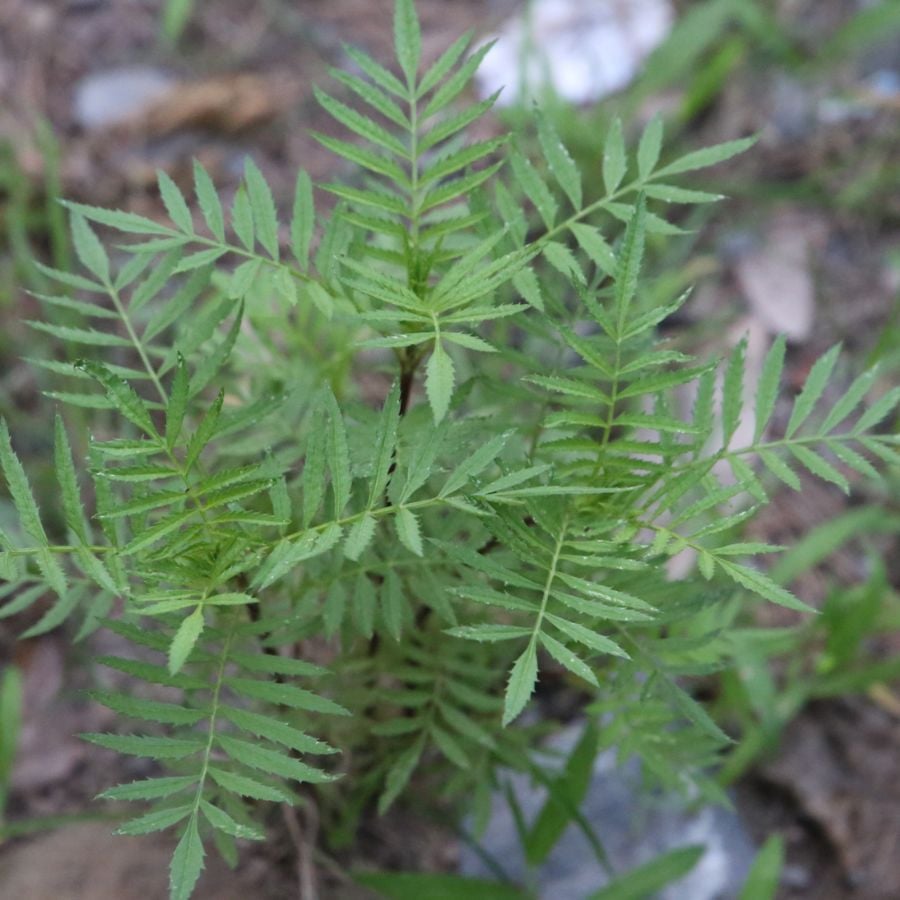
2. African Marigold: The Light Thief
Those spectacular oversized blooms on African Marigolds (Tagetes erecta) come with a dark side.
Standing up to 3 feet tall, these garden giants cast shadows like miniature skyscrapers, leaving smaller plants literally in the dark.
- The sneaky issue: Creates shade where you didn’t plan for it
- The pest problem: Acts like an aphid magnet, attracting these sap-suckers that can spread to your entire garden
3. Signet Marigold: The Spider Mite Summoner
The game-changer for your garden isn’t what you think with Signet Marigolds (Tagetes tenuifolia). Those cute, edible flowers might look charming in your salad, but they’re secretly sending invitations to spider mites.
- The hidden danger: Creates a spider mite haven that can quickly spread
- The ongoing battle: Requires constant vigilance and treatment
Is that citrusy scent worth the battle with these microscopic invaders? Most gardeners who’ve faced this infestation would give a resounding “no!”
4. French Marigold: The Slug Seducer
Those adorable compact French Marigolds (Tagetes patula) have a dirty little secret. They’re practically sending love letters to slugs and snails.
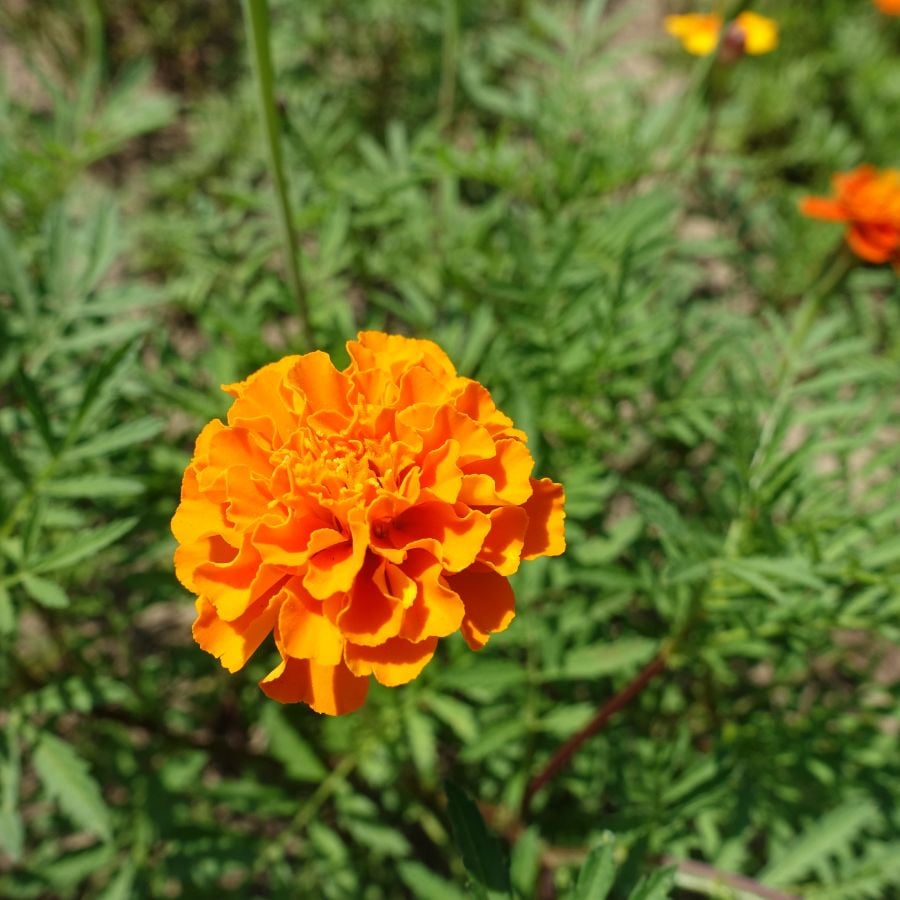
Your marigold might as well hang a “Free Buffet” sign for these slimy garden destroyers.
- The gastropod gateway: Attracts slugs that will eventually explore your entire garden
- The domino effect: What starts as holes in marigold leaves ends as devastation across multiple plants
5. Triploid Marigold: The Pollinator Ghost Town
Most people make this mistake with their Triploid Marigolds (Tagetes erecta x Tagetes patula), assuming that these hybrids offer the best of both worlds.
In reality, they inherit the worst pest vulnerabilities while contributing almost nothing to your garden’s ecosystem.
- The sterile reality: Produces no viable pollen or nectar for beneficial insects
- The double trouble: Susceptible to both French and African marigold pest problems
Your garden is trying to tell you something important when these plants sit lonely with no butterfly or bee visitors: they’re essentially ecological dead zones in your garden.
6. Pot Marigold: The Identity Thief
Here’s a stunning revelation: Pot Marigold (Calendula officinalis) isn’t even a true marigold!
This botanical impostor not only fakes its identity but can rapidly transform from a welcome guest to an invasive nightmare.
- The spread risk: Can self-seed aggressively, popping up where you don’t want it
- The native threat: Competes with and crowds out beneficial native species
- The biodiversity drain: Reduces the variety of plants your garden can support
Your Garden’s Marigold Makeover Starts Now
The vibrant, flourishing garden you deserve is just a few smart choices away. Instead of these troublemakers, opt for beneficial marigold varieties like ‘Lemon Gem’ or ‘Tangerine Gem’ that actually deliver on pest control promises without the drama.
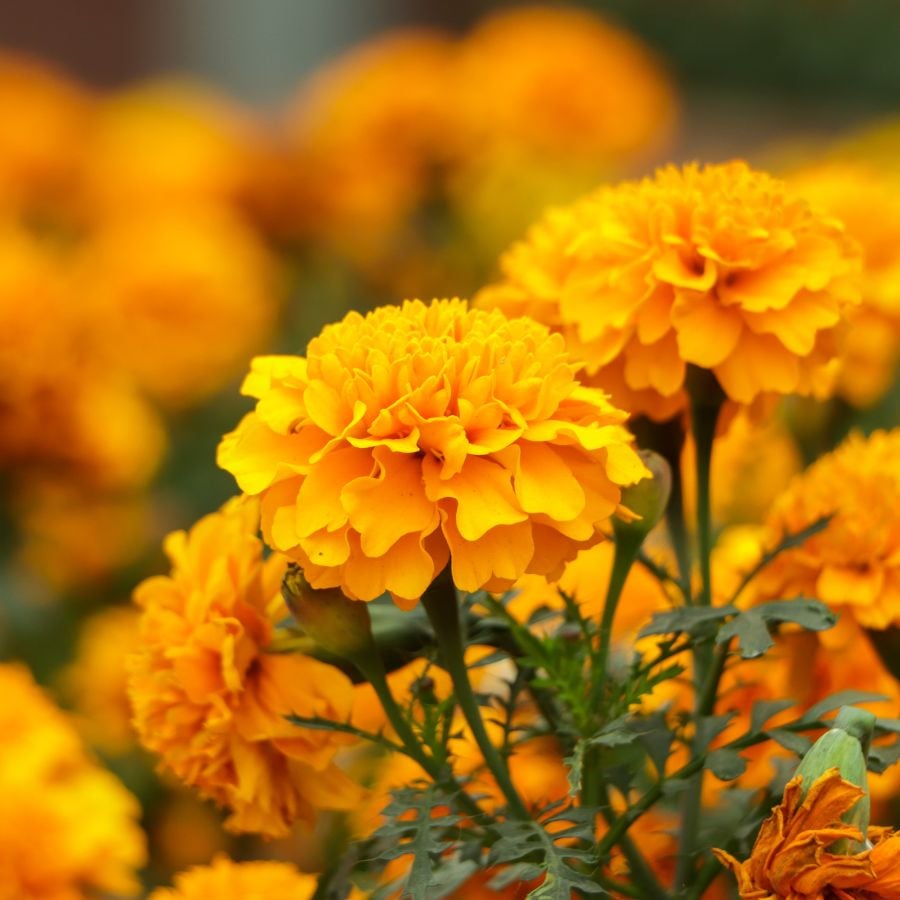
Remember: a truly spectacular garden isn’t just about what you plant. It’s about what you strategically choose NOT to plant.
Your soil, your beneficial insects, and your neighboring plants will thrive when you banish these six marigold menaces for good.
Has your garden been suffering in silence? The revival might be as simple as replacing these problem plants with varieties that actually pull their weight in your garden ecosystem.